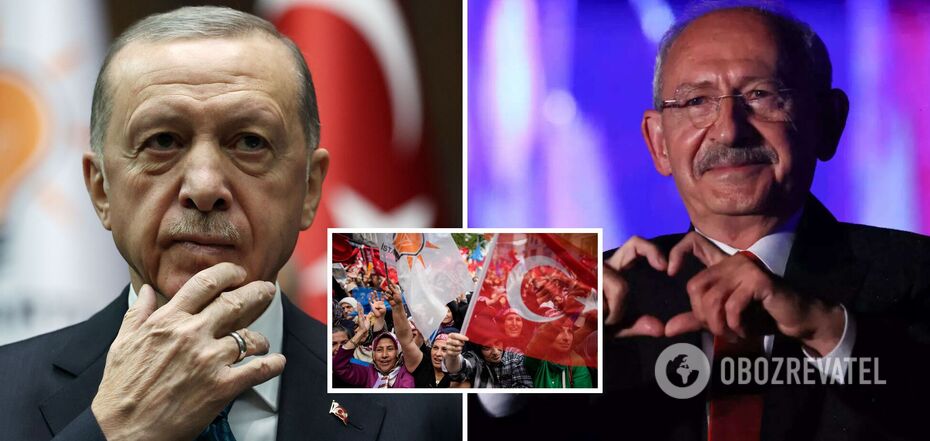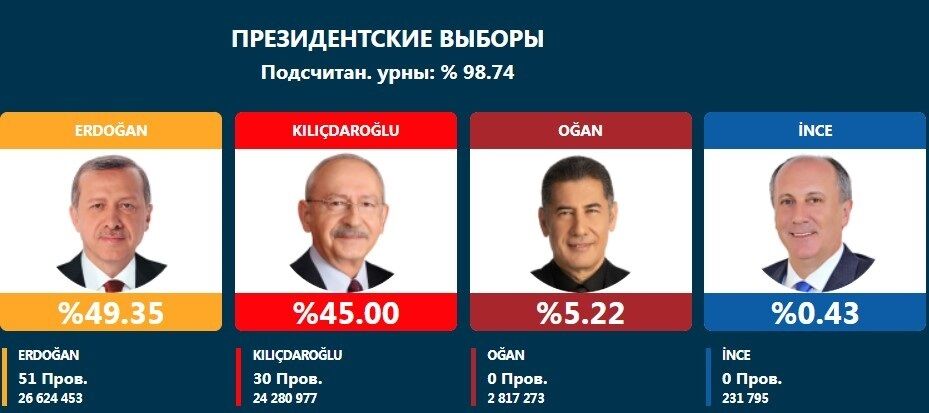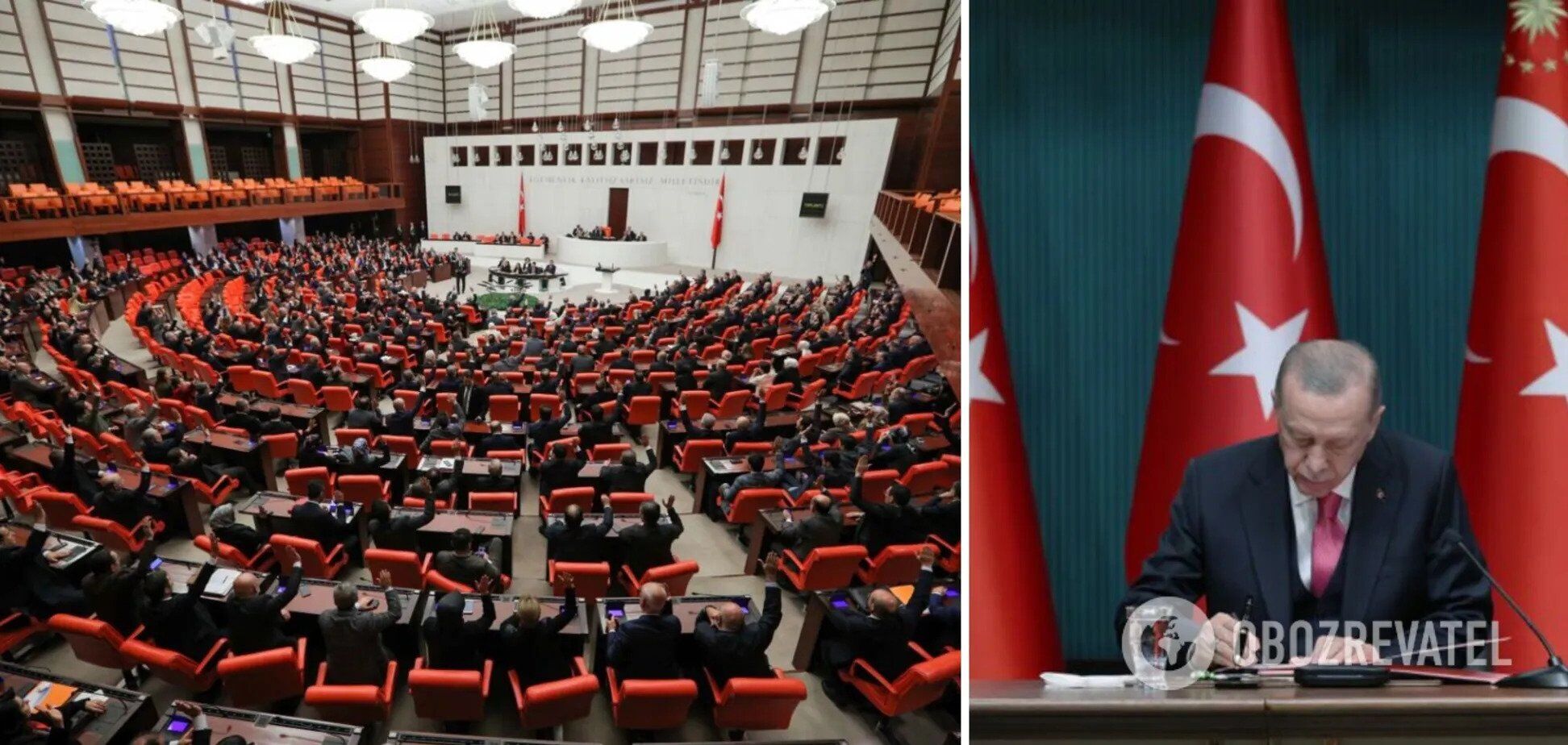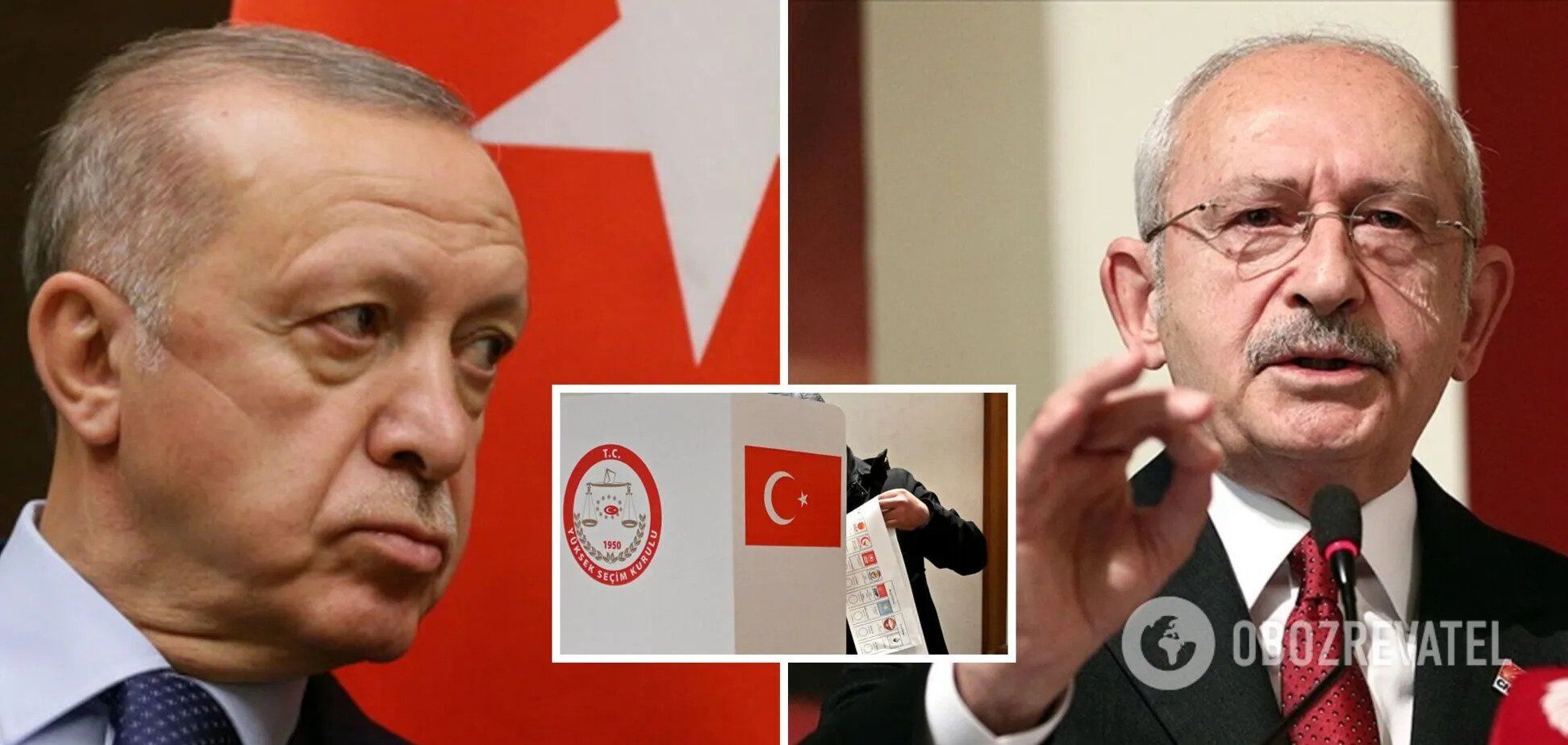World
Erdogan and Kılıçdaroğlu failed to get more than 50%, Turkey is waiting for the second round of elections: the main statements of politicians
Turkey is set to hold a second round of presidential elections after incumbent leader Rajep Tayyip Erdogan defeated his opposition rival Kemal Kılıçdaroğlu on May 14 but failed to garner an absolute majority to continue his 20-year rule as a NATO member state. With 98 percent of ballots counted, both candidates failed to pass the 50 percent threshold.
The current election was seen by many as a verdict on Erdoğan's increasingly authoritarian ways, and now analysts say that the opposition has failed to make the difference it had hoped for. The next vote is to be held on May 28, so OBOZREVATEL tells what is known about the elections in Turkey at the moment and how the main contenders for the presidency reacted to the first round.
Results of the first round
After counting more than 98 percent of the ballot boxes, Erdoğan led with 49.35 percent of the votes, while Kılıçdaroğlu led with 45 percent, according to the state news agency Anadolu. Turkey's top election commission gave Erdogan 49.49% of the vote after counting 91.93% of the ballot boxes.
Experts say the vote is crucial because it will decide not only who will lead the country, but also whether it will return to a more secular, democratic path and how it will deal with its serious cost-of-living crisis and manage key relations with Russia, the Middle East and the West. .
Opposition leader Kemal Kılıçdaroğlu said he would win the second round, urged his supporters to be patient and accused Erdoğan's party of interfering with the vote count and the reporting of results.
Erdogan performed better than polls predicted before the election, and he seemed in a confident and combative mood as he addressed his supporters, Reuters noted.
"We are already ahead of our closest rival by 2.6 million votes. We expect this figure to increase with the official results," the Turkish president said.
Erdogan has the advantage
Analysts say the results of the first round indicate deep polarization in a country at a political crossroads. Many are confident that the vote will still give Erdoğan's ruling alliance a majority in parliament and thus a potential advantage in the second round.
Opinion polls before the election pointed to a very tight race, but gave Kiliçdaroğlu, who leads the six-party alliance, a slight edge. Two polls from May 12 showed him over the 50 percent barrier.
The country of 85 million people, already struggling with skyrocketing inflation, now faces two weeks of uncertainty that could hit many areas, with analysts expecting fluctuations in the local currency and stock market in particular.
"The next two weeks will probably be the longest in Turkish history, and a lot will happen. I would expect a significant collapse in the Istanbul Stock Exchange and significant fluctuations in the currency," Hakan Akbas, managing director of Strategic Advisory, shared his opinion.
He suggested that Erdogan would have an advantage in the second vote, as his alliance performed much better than the opposition one.
It should be noted that the third, more nationalist presidential candidate, Sinan Ogan, received 5.3% of the vote. Analysts say he could become the "kingmaker" in the second round, depending on which candidate he supports.
The opposition claimed that Erdogan's party delayed full results by filing objections, while the authorities published the results in an order that artificially boosted the number of votes for the incumbent.
In particular, Kiliçdaroğlu is convinced that his vociferous opponent's party is "destroying Turkey's will" by objecting to counting more than 1,000 ballot boxes.
"You cannot prevent what happened with objections. We will never let it become a fact," he said.
At the same time, analysts write that the mood at the opposition party headquarters, where Kiliçdaroğlu expected to win, was subdued during the vote count. His fans waved flags of Turkey's founder Mustafa Kemal Ataturk and beat drums.
The historicity of the moment
The choice of Turkey's next president has been called one of the most important political decisions in the country's 100-year history that will echo far beyond its borders.
The victory of Erdogan, who is one of the most important allies of Russian dictator Vladimir Putin, is likely to embolden the Kremlin while simultaneously "upsetting" the administration of US President Joe Biden as well as many leaders in Europe and the Middle East who have had an uneasy relationship with the Turkish leader.
He has led the country for the longest time, turned it into a NATO member and, as the second largest state in Europe, a global player, and modernized it with megaprojects such as new bridges and airports and built a weapons industry that foreign countries now seek.
But Erdogan's unstable economic policy of low interest rates, resulting in a spiraling cost-of-living crisis and inflation, has, according to experts, "left him a victim of voter anger. The current government's slow response to the devastating earthquake in southeastern Turkey, which killed some 50,000 people in early 2023, has further angered citizens.
If the opposition wins...
Kemal Kılıçdaroğlu promised to revive democracy after years of state repression, return to orthodox economic policies, empower institutions that had lost autonomy under Erdoğan, and restore weak ties with the West.
If the opposition wins, thousands of Turkish political prisoners and activists could be released from prison.
Critics fear that Erdoğan will rule even more autocratically if he wins another term. Although the 69-year-old president himself says he respects democracy.
In the parliamentary elections, his Justice and Development Party (AKP), the Nationalist Movement Party and other political forces performed better than expected and won a majority.
Some say that the fact that the achievements of the extreme right are not reflected in the Turkish polls has played an important role in shaping this expectation that the opposition can make the difference it hoped for.
"If you look at the speeches on the last day, some academics said there would be a clear difference, even 5%. We can see that this expectation was not met. A big mistake was made here, the possible results were misinterpreted. We cannot yet say that the opposition has lost or won, but we have seen that the step it will take is exaggerated," Berkeley University professor Cihan Tugal assessed the first round vote, although the final results of the election are not yet clear.
As reported by OBOZREVATEL, analysts assessed that in case of defeat of Recep Tayyip Erdogan in the presidential elections in Turkey, the aggressor country Russia may lose its economic and diplomatic partnership.
Only verified information at our Telegram channel Obozrevatel and Viber. Do not be fooled by fakes!






























